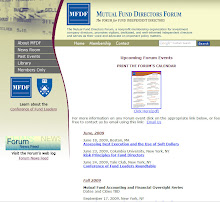Shareholder Approval of Executive Compensation of TARP Recipients
The SEC proposed rules requiring annual shareholder advisory votes on executive compensation for TARP recipients as required by the Emergency Economic Stabilization Act (EESA). These votes will be required in all proxy solicitations made while a company has TARP assistance outstanding. The rules are designed to make it easier for TARP recipients to comply with the EESA.Proxy Disclosure and Solicitation Enhancements.
The SEC proposed rules designed to improve disclosure in proxy solicitations concerning:
- <Compensation issues. The proposed rules would require disclosure of the relationship between a company’s compensation policies and its risk profile. This disclosure would require a discussion of broad compensation policies and practices for all employees (not just named executive officers as is currently required) and how those policies and practices may materially affect the company.
- Director and director nominee qualifications. The proposal would require disclosure about the director’s/nominee’s qualifications, including experience, attributes, and skills for board service as a whole, as well as service on particular committees. Information about a director’s/nominee’s service on other public company boards during the last five years would also be disclosed. Additionally, the current five-year requirement for the disclosure of legal proceedings would be expanded to 10 years.
- Corporate governance/leadership structure. The proposed rules would require a company to disclose in its proxy materials its leadership structure, and why that structure is best for the company. Required disclosure would include why the Chair/CEO positions are or are not held by the same individual and whether the board has a lead independent director. Additionally, proxy statements would have to disclose the board’s role in risk management.
- Compensation consultants. The proposed rules would address possible conflicts of compensation consultants by requiring disclosure of information on fees and services provided by these consultants.
- <More timely disclosure of results. The new rules would require that results of shareholder votes would be required to be reported on Form 8-K within 4 days after the meeting where the vote took place.
- Finally, the rules would clarify proxy rules and facilitate shareholder communications in voting.
Order approving amendments to NYSE Rule 452 dealing with brokers discretionary voting.
The Commission voted (3 -2) to adopt rules proposed prohibiting brokers holding shares in street name from voting in uncontested elections of directors where no voting instructions were received from customers. The rule will not apply to companies registered under the 1940 Act. Additionally, the rule codifies 2 existing interpretations with respect to investment companies. The rule will preclude discretionary voting on material changes to an investment advisory contract. Additionally, the rule defines a material amendment to an investment advisory contract to include shareholder approval of a contract with a new investment adviser for which shareholder approval is required.
A video archive of the Commission's July 1 Open Meeting is available at: http://www.sec.gov/news/press/2009/2009-147.htm
The text of Chairman Mary Schapiro's opening statement at the July 1 meeting is available at: http://www.sec.gov/news/speech/2009/spch070109mls.htm
The proposing release for the first item, "Shareholder Approval of Executive Compensation of TARP Recipients," was published by the Commission on just after the July 1 open meeting. The full text of that release can be read at: http://www.sec.gov/rules/proposed/2009/34-60218.pdf
The proposing release for the "Proxy Disclosure and Solicitation Enhancements" item, and the final rule release for the broker discretionary voting item will be published by the Commission in upcoming weeks, and will be available on the Commission's website.





